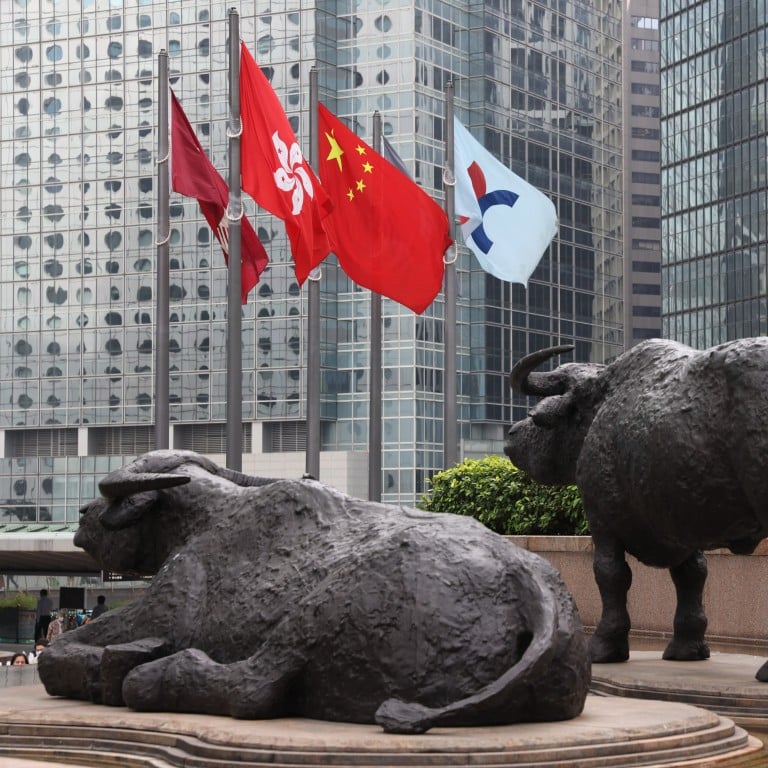
Hong Kong stocks at three-month highs as buy-back hopes buoy sentiment; property sector lifted by state support bets
- The Hang Seng Index rose to its highest level in 2024, erasing losses for the year as drug maker Wuxi AppTec surged after it spent US$7 million on share repurchases
- Chinese property developers surged on expectations that the government would ramp up funding support for the biggest players in the embattled sector
The Hang Seng Index jumped 3.1 per cent to 17,093.50 at close, its highest since November 28. The Hang Seng Tech Index surged 4.6 per cent, taking its gain to 21 per cent from a January 31 low, to enter what is defined as a bull market. But the Shanghai Composite Index retreated 0.4 per cent.
Drug maker Wuxi AppTec climbed 5.6 per cent to HK$51.75 after saying it spent 50 million yuan (US$7 million) repurchasing its onshore shares trading in Shanghai on Monday. Longfor Group Holdings and China Resources Land led the rally among Chinese developers, rising at least 10 per cent.
“Buy-backs are typically seen at a time when markets trade at or close to the bottom,” said Ren Lang, an analyst at Kaiyuan Securities. “Buy-backs are very indicative in flagging that valuations and share prices are low. They can have a material impact on supporting stock prices.”
The sentiment boost from corporate buy-backs comes soon after the mood was lifted by an unexpected rise in China’s consumer prices in February. More companies trading in Hong Kong and the mainland are joining the fray, including e-commerce giants Alibaba Group Holding and JD.com which unveiled such plans in recent weeks.
This potentially signals that valuations have become sufficiently cheap to make buy-backs a better use of cash, according to Allianz Global Investors. In an average month over the last five years, 121 firms have bought back 8 billion yuan in stocks and in February this year alone, 669 firms completed or were implementing buy-backs worth 55 billion yuan, it said.
The Hang Seng Index is trading at 8.3 times estimated earnings, the second-cheapest among key markets globally after Brazil, according to Bloomberg data.
A sub-gauge of property stocks on the Hang Seng Index surged 4.9 per cent, the best performer among the benchmark’s four industry groups. Expectations are mounting that China’s state-owned banks will raise as much as 80 billion yuan in syndicated loans to support China Vanke, the nation’s second-largest developer by market value.
China Vanke, which is not a member of the Hang Seng Index, rallied 10 per cent to HK$6.30. Longfor Group jumped 14 per cent to HK$10.84 and China Resources Land soared 10 per cent to HK$24.75. China Overseas Land and Development strengthened 9.6 per cent to HK$11.60.
Other major Asian markets were mixed. Japan’s Nikkei 225 slipped 0.1 per cent, while South Korea’s Kospi rose 0.8 per cent and Australia’s S&P/ASX 200 added 0.1 per cent.

